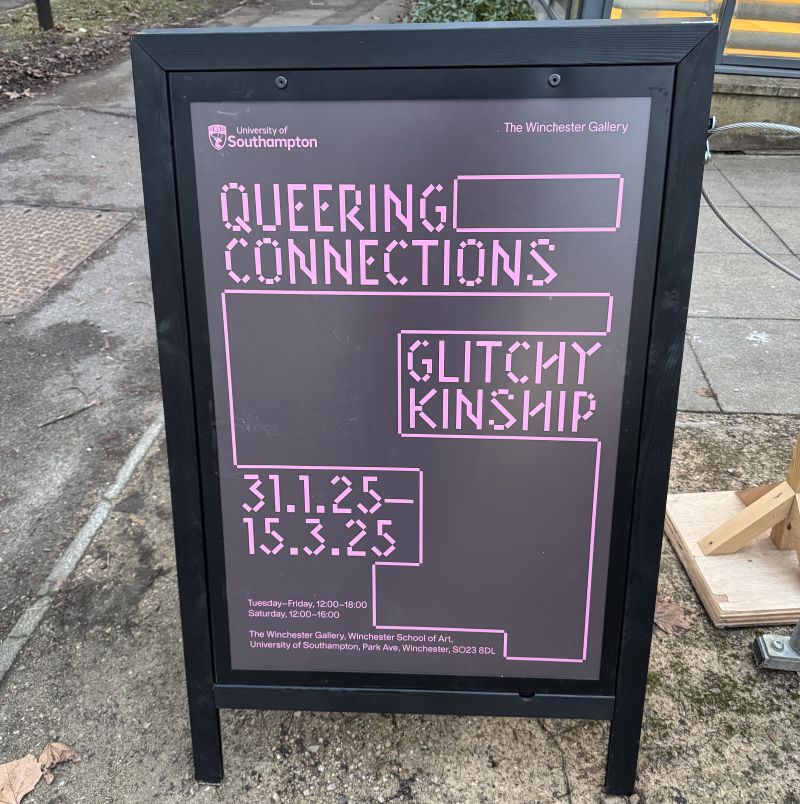The fifth Queering Connections art exhibit launched this week at The Winchester Gallery at Winchester School of Art (30/1/25). This exhibition by sociologist Dr Lizzie Reed of sociology and artist Milou Stella, called Glitchy Kinship, explores relationships and states of change between people, nature, stories, and objects in time and space.
I’d been looking forward to seeing this exhibition for a little while now. Prior to visiting, I was thinking a lot about my own familial relationships. I can definitely see coming out as transgender causing a huge glitch in the way people have thought about me and those relationships. When I saw the art on display at Queering Connections, it introduced me to far more examples of what we could call “glitches” in our relationships, and examples that go beyond just my own life.
Milou Stella’s “Incubator4AnotherTime” is an audiovisual HD projection which shows a patch of what could possibly be a garden. This patch of garden seems to have been photographed or video recorded multiple times, possibly over several years. These scenes are superimposed onto each other to show many perennial flowers which are blooming and coming back year after year, but their colours, varieties and exact location varies.
This could represent the theme of distortion or recursion – which is where a process (such as seeds growing into plants and flowering) is repeated again and again, and through that process changes can start to occur, these changes would be glitches that can start being small but possibly have larger semantic consequences. A soundtrack featuring birdsongs plays over the projection, the space the projection is displayed is filled with pillows and and a soft carpet which makes for a very relaxing experience, almost like a maternal figure trying to comfort you into accepting change. Inside the space is also Trigger, an ambiguous object which I think looks like a bomb made of recycled materials.
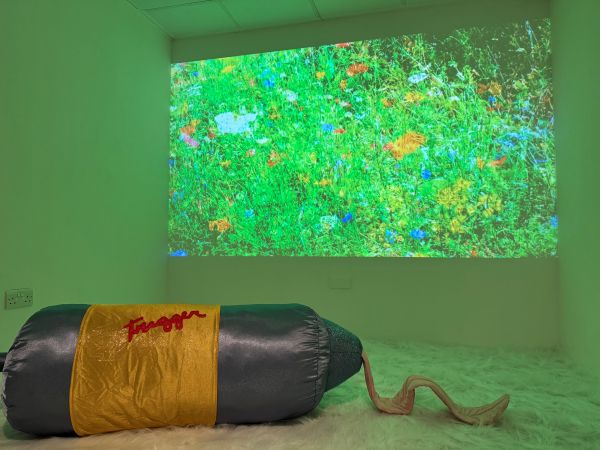
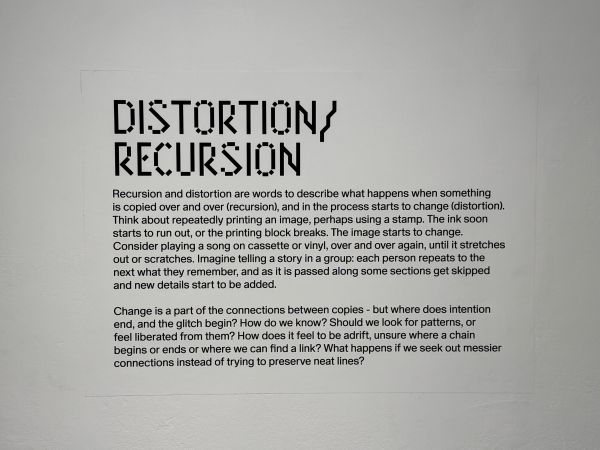
Another piece which I believe is based on the theme of Distortion and Recursion is “Worldview” by Emma Kay. This is a book written by Kay about the history of the world, from Kay’s perspective and written completely from her own memory without reference. Such an ambitious book is vulnerable to distortions from false memories or fainter details that Kay could have had to work around and unknowingly include, especially since the history of the world looked at in this book begins from The Big Bang and ends at the end of the 1900s!
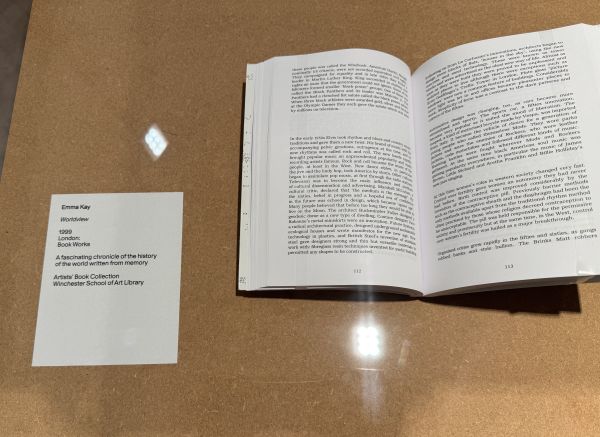
Many things could count as a glitch. Small changes such as minor adjustments in information in a game of Whispers could slowly build up into a huge change in the final copy of the relayed information. Other glitches could be the changing of the season, or the malfunction of a printing press causing ink smudges in later prints of a book. However, some glitches are much larger in both the size of the event (the glitch) and its outcome on people and objects in time and space…
“Keepsake” by Angie Butler is a flat leather book of a handkerchief with the words “this is the last thing…. that my father ever held.” This piece alludes to the largest and most altering glitch we will ever face in our life – death. That and the deaths of those around us will affect all of our relationships and connections between people, and of course the physical world. There are many handkerchiefs which are physically like this one, however, like the words say, this is the last thing Angie Butler’s father held. Through the memory and retelling of this fact the handkerchief is more than the sum of its physical parts, the handkerchief through the glitch of death is now of a higher level than other handkerchiefs both to Angie Butler and those who can empathise with the importance this mundane object now has sentimentally. Personally I’m quite lucky to have not lost a close family member at this time but despite that I feel this piece is particularly moving.
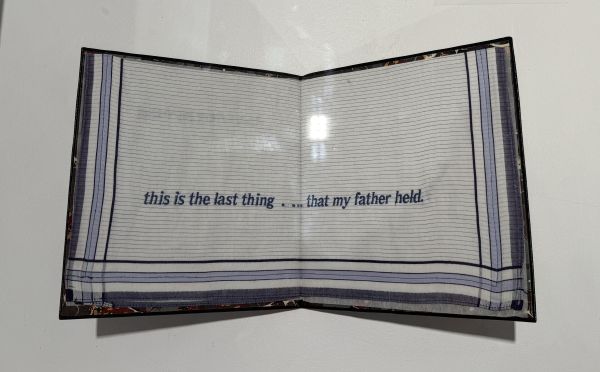
These are just three of tens of thought-provoking pieces at are now on display at The Winchester Gallery. I highly recommend seeing the exhibition to help see the world through many different perspectives, all revolving around the theme of Glitchy Kinship which in itself tackles many different aspects of the, not just human, experience. If you see the exhibition please let me know in the comments what you have thought of the pieces and anything particularly touching any pieces have made you feel. Be sure to take a friend or two to discuss out loud and share how these pieces have made you feel.
- Queering Connections: Glitchy Kinship runs until March 15. For more information, click here.
- In Common is not for profit. We rely on donations from readers to keep the site running. Could you help to support us for as little as 25p a week? Please help us to carry on offering independent grass roots media. Visit: https://www.patreon.com/incommonsoton

